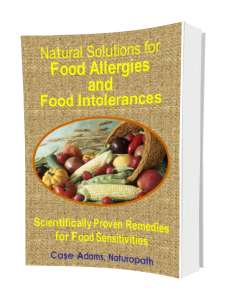Vitamin D Supplements Linked Child’s Food Allergy Risk
German researchers have discovered that supplementation of vitamin D in pregnancy increases the risk of the baby having food allergies.
The researchers, from from Germany’s Helmholtz Center for Environmental Research, analyzed the cord blood samples of 378 mothers during their pregnancy and at birth. They then followed the infants for their first two years of life.
They found that higher levels of vitamin D within the cord blood was associated with a higher incidence of food allergies in the first two years of the child’s life.
“Our study demonstrates that high vitamin D levels in pregnancy and at birth may contribute to a higher risk for food allergy and therefore argues against vitamin D supplement to protect against allergy,” the researchers concluded.
Taking higher levels of vitamin D supplements was specifically found to result in higher levels of immunoglobulin E (IgE) specific to common food allergens. These include eggs, peanuts, soy, cow’s milk and others.
Allergies and Treg Cell Counts
The mechanism the researchers found, appears to be related to a type of immune cell called a regulatory T-cell, or Treg cell. Treg cells are related to the body’s ability to respond to and adapt to possible food allergens. The lower the Treg cell count, the more potential for allergies.
The researchers found that higher vitamin D within the cord blood was associated with lower Treg cell counts.
Allergy expert Dr. Kristin Weiss led the research, and warned against taking vitamin D supplements during pregnancy: “Based on our information, an excess of vitamin D can increase the risk of children developing a food allergy in the first two years of their life.”
At issue is the relationship between the production of vitamin D from the sun and taking supplements. Other research has found that babies born in sunnier regions have less food allergies, and baby’s born in the spring or summer – periods with more sun exposure – have fewer food allergies (see reference below for more information.)
The fact that vitamin D3 – which the body readily produces from the sun into 25-hydroxycholecalciferol (or 25(OH)D) – translates more readily to the benefits associated with vitamin D, may be part of the equation. Vitamin D2 (ergocalciferol) is not as metabolically beneficial. Many supplements contain vitamin D2, and milk is typically supplemented with vitamin D2. This study, however, did measure 25(OH)D3 levels, but the relationship between the vitamin D source and the food allergies was not specifically examined, outside the relationship between vitamin D supplementation and food allergy risk.
Vitamin D is also linked to cognitive health.
As to whether the sun produces a more effective and beneficial form of vitamin D3 has not been verified, but there is evidence that would lend to this being the case.

Learn the benefits of the sun and how to help prevent skin cancer while supporting this ad-free website.
REFERENCE:
Weisse K, Winkler S, Hirche F, Herberth G, Hinz D, Bauer M, Röder S, Rolle-Kampczyk U, von Bergen M, Olek S, Sack U, Richter T, Diez U, Borte M, Stangl GI, Lehmann I. Maternal and newborn vitamin D status and food allergy development in the German LINA cohort study. Allergy. 2013 Feb;68(2):220-8.
















